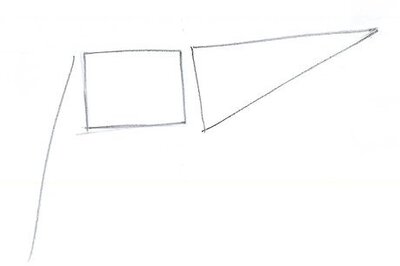
views
India on Thursday asked the international community to “isolate and expose” those countries that harbour terrorists, provide safe havens and condone terrorism, underlining that if left unchecked, terrorism can become a major threat to regional and global peace, in a veiled jibe at China and its all-weather ally, Pakistan.
Delivering Prime Minister Narendra Modi’s remarks at the 24th Meeting of the Shanghai Cooperation Organisation Council of Heads of State here in the Kazakh capital, External Affairs Minister S Jaishankar, who was physically present at the meeting, recalled that one of the original goals of the SCO is to combat terrorism.
“Many of us have had our experiences, often originating beyond our borders. Let us be clear that if left unchecked, it can become a major threat to regional and global peace. Terrorism in any form or manifestation cannot be justified or condoned,” he told the summit, which was attended by Chinese President Xi Jinping, Pakistan Prime Minister Shehbaz Sharif and Russian President Vladimir Putin among others.
He said that the international community “must isolate and expose those countries that harbour terrorists, provide safe havens and condone terrorism”, in an apparent reference to Pakistan and its all-weather ally China which has often put on hold on proposals in the United Nations to blacklist the Pakistan-based wanted terrorists.
“Cross-border terrorism requires a decisive response and terrorism financing and recruitment must be resolutely countered. We should also take proactive steps to prevent the spread of radicalisation among our youth,” he said, adding that the joint statement issued during India’s Presidency last year on this subject underlines New Delhi’s shared commitment.
Later, Jaishankar delivered Prime Minister Modi’s remarks at the extended format Meeting of the SCO Council of Heads of State where he spoke about challenges, saying terrorism would surely rank foremost for many of us.
“The truth is that it continues to be used by nations as a tool of destabilisation. We have had our own experiences with cross-border terrorism. Let us be clear that terrorism in any form or manifestation cannot be justified or condoned. Harbouring terrorists must be strongly condemned,” he said, adding that the SCO must never waver in its commitment. “We cannot have double standards in this regard.” He also said that the SCO extended family shares a commitment to reform the current international order. “This is only possible when those efforts extend to the United Nations and its Security Council. We hope that in the near future, we can develop a strong consensus on the way ahead,” he said.
When it comes to geo-economics, the need of the day is to create multiple, reliable and resilient supply chains, he said, adding that India is open to partnering with others in capacity building, especially nations of the Global South.
Noting that the current global debate is focused on creating the new connectivity linkages that would better serve a rebalanced world, he said if this is to gather serious momentum, it requires the joint efforts of many.
“It must also be respectful of sovereignty and territorial integrity of states and be built on the foundation of non-discriminatory trade and transit rights to neighbours,” he said, in an apparent reference to China which is engaged in hotly contested territorial disputes with several countries.
China has invested billions in various power projects and road networks in Pakistan under the USD 65 billion China-Pakistan Economic Corridor (CPEC) project, which is opposed by India as it is being laid through Pakistan-occupied Kashmir (PoK).
He also said that the progress made by India in developing Iran’s Chabahar Port not only holds “great value” to landlocked Central Asian states but also “de-risks” commerce between India and Eurasia.
He described the SCO as a principle-based organisation, whose consensus drives the approach of its member states, and said the grouping occupies a “prominent place in our foreign policy”.
“At this time, it is particularly noteworthy that we are reiterating mutual respect for sovereignty, independence, territorial integrity, equality, mutual benefit, non-interference in internal affairs, non-use of force or threat of use of force as a basis for our foreign policies. We have also agreed not to take any measures contrary to the principles of state sovereignty and territorial integrity,” he said.
He also said that climate change is a prominent concern before the world today and India is working towards achieving a committed reduction in emissions and building climate-resilient infrastructure.
“In this context, during India’s SCO presidency, a Joint Statement on emerging fuels, and a Concept Paper on de-carbonization in the transportation sector were approved,” he added.
During last year’s annual climate conference, Prime Minister Modi said India has already declared to achieve Net Zero by 2070. It plans to reduce emissions intensity by 45 per cent by 2030 and increase the share of non-fossil fuel to 50 per cent.
He also reminded the audience that the SCO needs to make “technology creative” and apply it to the welfare and progress of societies.
“India is among the countries to formulate a National Strategy on Artificial Intelligence and the launch of an AI Mission. Our commitment to ‘AI for All’ is also reflected in working within the SCO framework on a Roadmap on AI cooperation,” he added.
Modi congratulated the Kazakh side for successfully hosting the summit and also conveyed India’s best wishes to China for the next presidency of the SCO.
He also expressed “deepest condolences” for the tragic demise of Iranian President Ebrahim Raisi and others in the helicopter crash.
With nine member states — India, Iran, Kazakhstan, China, Kyrgyz, Pakistan, Russia, Tajikistan and Uzbekistan – the Beijing-based SCO has emerged as an influential economic and security bloc and one of the largest trans-regional international organisations. Belarus joined as the 10th member.
Kazakhstan is hosting the summit in its capacity as the current chair of the grouping.

















Comments
0 comment